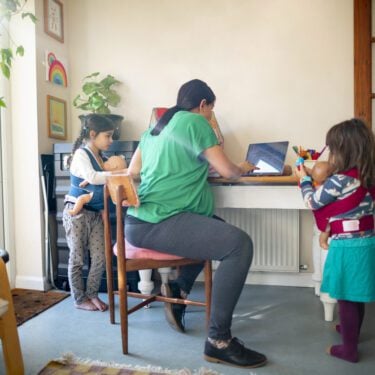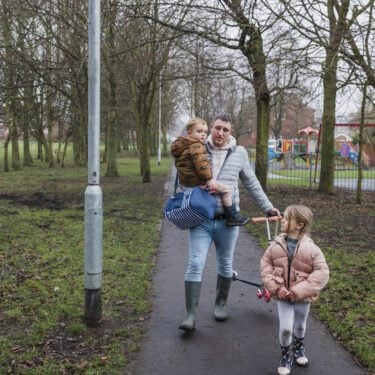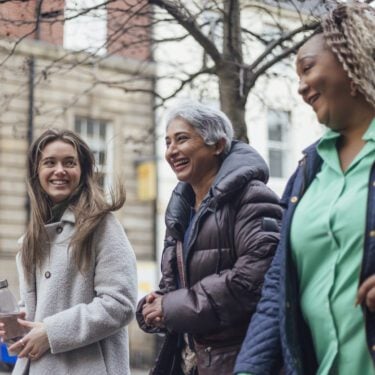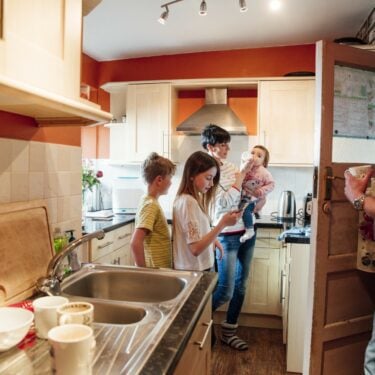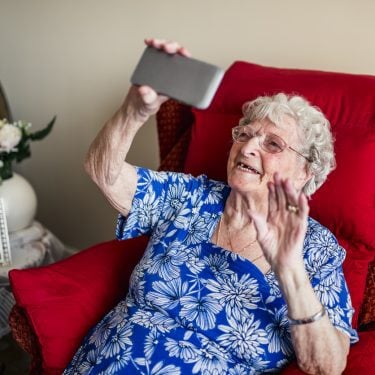
01/05/14
5 min read
A new approach to care proceedings that tackles the substance misuse of parents has been successful in reducing the number of children taken into care and enabling more families to remain together safely.
An independent evaluation of the pilot Family Drug and Alcohol Court (FDAC) found that parents who had been through the FDAC process as opposed to ordinary care proceedings were more likely to stop misusing substances and, if they did so, more likely to be reunited with their children. FDAC families who were reunited at the end of proceedings had lower rates of neglect or abuse in the first year following reunification than reunited families who had been through ordinary care proceedings.
The evaluation recommends that FDAC should be rolled out more widely. It also highlights the need for greater support for reunited families when care proceedings finish, and for cases to finish more quickly when parents do not engage with the process.
What is FDAC?
FDAC is a new way of dealing with care proceedings when parental substance misuse is causing harm to children. This is an issue in up to two thirds of all care proceedings. Unlike conventional care proceedings, parents in FDAC see the same judge throughout and meet with them every fortnight. They also receive support from a multi-disciplinary team, which helps them access substance misuse services and provides assistance in tackling other problems such as housing, domestic violence and financial hardship.
The FDAC pilot ran from January 2008 to March 2012 at the Inner London Family Proceedings Court. The multi-disciplinary team is provided by the Tavistock and Portman NHS Foundation Trust in partnership with children’s charity, Coram. The pilot is based on a successful US model and began with three participating London Boroughs – Camden, Islington and Westminster. Hammersmith and Fulham and Southwark joined the pilot in 2012.
Main findings from the independent evaluation
The independent evaluation team was led by Professor Judith Harwin at Brunel University, London and funded by the Nuffield Foundation, with a contribution from the Home Office. It found:
- FDAC families had higher rates of substance misuse cessation than those who had been through ordinary care proceedings: 40% of FDAC mothers compared to 25% of comparison mothers, and 25% of FDAC fathers compared to 5% of comparison fathers, although the data on fathers was less complete than for mothers.
- FDAC families had higher rates of family reunification: 35% of FDAC mothers stopped misusing and were reunited with their children, compared to 19% of mothers who had been through ordinary care proceedings.
- The rate of neglect or abuse one year after children returned home was lower for FDAC parents than parents who had been through ordinary care proceedings: 25% compared to 56%.
- In cases where reunification was not possible, FDAC was no quicker in achieving alternative permanent placement than ordinary proceedings (62 weeks).
- In addition to receiving the intensive service from the FDAC team, a higher proportion of FDAC mothers (95% v 55%) and fathers (58% v 27%) were offered help from other agencies for their substance misuse.
Professor Judith Harwin said: “Our findings show FDAC is effective in helping to break the cycle of harm caused by parental substance misuse. One of the main strengths of FDAC is its unique combination of a specialist team attached to the court and judges who stick with a case throughout, motivating parents and providing tight oversight. One father spoke for many parents interviewed when he told us: ‘FDAC has been of enormous benefit to us. I have been freed from addiction, and my child has gained a father.’ The challenge now is to ensure that FDAC can fulfil its potential within the context of changes to the family justice system resulting from the Children and Families Act introduced last week.
District Judge Nick Crichton said:“This evaluation shows that swift access to integrated support services helps parents control their substance misuse and be reunited with their children. FDAC also has the support of parents themselves, which is crucial to its success. We now need to see a better system for tracking outcomes of these cases, which will give the court clearer information and improve feedback to local authorities.”
In a joint statement, children’s charity Coram, The Tavistock & Portman NHS Foundation Trust and the London Boroughs of Camden, Islington and Westminster, said: “The Tavistock and Portman NHS Foundation Trust, Coram and the commissioning London Boroughs are very pleased to see this rigorous and thorough research showing such positive outcomes for these very vulnerable children and their families. The benefits of receiving such highly professional input at a crucial early stage, and improved access to collaborative assessment, treatment and after care services is well evidenced by Professor Harwin and her team. The service is delivering excellent results in a difficult commissioning climate and tight timescales and we hope that the FDAC model will be taken up elsewhere in the country in order that more families in serious difficulties can benefit from such innovative evidence-based professional practice.”
Notes to editors
1. The Nuffield Foundation has published a summary of findings from the evaluation report. The report was written by Professor Judith Harwin, Dr Bachar Alrouh, Mary Ryan and Jo Tunnard. The full report is available to download from www.nuffieldfoundation.org/fdac.
2. The FDAC pilot ran from January 2008 to March 2012 at the Inner London Family Proceedings Court in Wells Street. Originally funded by government departments and three local authorities (Camden, Islington and Westminster), it now runs as a consortium of five local authorities. In July 2013 the Department for Education (DfE) announced additional funding for FDAC to be extended to two more areas: Gloucester, which is up and running, and Milton Keynes and Buckinghamshire, which will launch in July.
3. The evaluation was conducted in two stages between 2008 and 2013. The main findings are based on 90 families (122 children) who were referred to, and received, the FDAC programme, and the 101 families (151 children) who formed the comparison sample. In both samples parental substance misuse was a key factor in initiating the care proceedings. There was also a qualitative element to the evaluation, including interviews with parents and professionals and observations of court hearings.
4. The total funding secured for the five-year FDAC project is £2,103,129. This has been contributed by DCSF (now DfE), the Home Office, the Department of Health, the Ministry of Justice and the four participating London boroughs.
5.The Family Justice Review (2011) recommended the limited rollout of FDAC following publication of the evaluation’s interim findings. The Munro Review of Child Protection (2011) also noted the success of FDAC in using multi-disciplinary teams can provide effective interventions for vulnerable children.
6. The Nuffield Foundation is an endowed charitable trust that aims to improve social well-being in the widest sense. It funds research and innovation in education and social policy and also works to build capacity in education, science and social science research. The Nuffield Foundation has funded this project, but the views expressed are those of the authors and not necessarily those of the Foundation. More information is available at www.nuffieldfoundation.org
7.Brunel University, London, is a campus-based university in the west of London, home to 15,000 students and around 2000 academics, researchers and staff. The University offers a full range of courses, covering business, science, engineering, social sciences and the arts, with a particular emphasis on developing skills that will give its students a distinct advantage in the world of work.


























